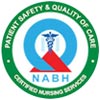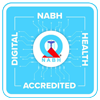
Basics about blood disorders:
Department of Clinical Hematology aims to provide state of art diagnostic evaluation and treatment for all types of blood disorders. Blood disorders can be divided into benign (non-cancerous) and malignant (cancerous) disorders. Blood disorders can have wide variety of symptoms and most often blood disorders are identified when blood testing done by primary health care physician, however some of these symptoms are more specific to blood disorders.
- Long standing (more than 1 month) or rapidly growing lymph node swellings in the neck, arm pit or groin.
- Bone pain or bone fracture without injury or with minor injury
- Unexplained weight loss
- Pale skin
- Jaundice with low hemoglobin
- Fever not responding to treatment for more than 2 weeks
- Bleeding from nose, gums, or bleeding in stools
One may seek Hemato-Oncologist consultation if you have any of the above symptoms or when you are referred to a Hematologist.
If you are doing CBC testing for any reason, you may need hematologist consultation when your Hemoglobin is < 8 gm/dl, WBC counts are less than 3000/ul and or when platelets are less than 50,000/ ul.
Based on patient’s symptoms and findings on clinical examination, necessary blood investigations will be taken and if required BMA/Bx or lymph node biopsy will be done. After reaching the diagnosis, various treatment options (oral medication, IV injections, Chemotherapy, Immunotherapy and targeted therapy, Bone Marrow Stem cell Transplant) for the condition will be discussed with patient & family and final treatment will be decided.
- Anemia ( Low Hemoglobin)
- Polycythemia ( abnormally high hemoglobin)
- Thrombocytopenia ( Low WBC count)
- Thrombocytosis ( abnormally high platelet count)
- Leucopenia ( low WBC counts)
- Leukocytosis (abnormally high WBC counts)
- Pancytopenia ( HB, WBC, Platelet – all abnormally low )
- Hemophagocytic lymphohistiocytosis ( secondary to infection or genetic conditions)
- Bone marrow failure (aplastic anemia)
- Hereditary hemolytic anemia
– Thalassemia
– Sickle cell anemia
– Hereditary spherocytosis - Bleeding and coagulation disorders ( excessive bleeding without any injury)
– Hemophilia and relateddisorders
– Von Willebrand disease - Autoimmune blood disorders
– Immune thrombocytopenia (ITP)
– Autoimmune hemolytic anemia (AIHA) - Special population
– Pregnancy with low platelet counts
– Pregnancy with low hemoglobin
– Pubertalmenorrhagia
- Long standing lymphadenopathy evaluation (more than 1 month)
- Splenomegaly evaluation
- Hodgkin lymphoma
- Non-Hodgkin lymphoma
– DLBCL
– Follicular lymphoma
– T cell lymphoma
– Other NHL - Multiple Myeloma
- Light Chain Amyloidosis
- Chronic lymphocytic leukemia
- Chronic Myeloid leukemia
- Chronic Myeloproliferative disorders ( Myelofibrosis, essential thrombocytosis, polycythemia Vera)
- Myelodysplastic syndrome
- Acute leukemia type blood cancers
– Acute Lymphoblastic Leukemia
– Acute Myeloid Leukemia
- Autologous Bone marrow stem cell transplant for Multiple Myeloma
- Autologous Bone marrow stem cell transplant for Mantle Cell Leukemia
- Autologous Bone marrow stem cell transplant for relapsed lymphoma
- Matched sibling Allogeneic transplant for various blood disorders ( Benign and Malignant)
Super Specialties Departments
- Aesthetic / Cosmetic Surgery
- Bariatric & Metabolic Surgery
- Cardiology & Preventive Cardiology
- Cardiothoracic & Vascular Surgery
- Clinical Hematology
- Critical Care Medicine
- Developmental Pediatrics
- Emergency Medicine
- Endocrinology & Diabetology
- Endo Gynecology
- Family Medicine
- Fertility Clinic & Centre for Reproductive Medicine
- Fetal Medicine
- Gastroenterology
- Genetics
- Geriatric Medicine
- Gynecologic oncology
- Heart & Lung Transplant LEADING IN THE REGION | One of the Best in the Country
- Hepato-Pancreato-Biliary Surgery & Liver Transplant
- Home Health Service
- Interventional Radiology
- Maxilo Facial Surgery
- Medical Oncology
- Naturopathy & Yoga
- Neonatology
- Nephrology
- Neurology
- Neurosurgery
- Nuclear Medicine
- Paediatric Surgery
- Pain Medicine
- Palliative and Hospice Care
- Pediatric Cardiology
- Pediatric Oncology
- Physical Medicine & Rehabilitation
- Plastic Surgery
- Pulmonology
- Radiation Oncology
- Rheumatology
- Robotic Surgery
- Suraksha
- Surgical Gastroenterology
- Surgical Oncology
- Urology & Andrology
Find a Doctor!
Request an Appointment
-

Share with us
Click Here -

Organ Transplantation
Click Here
Copyrights © 2025 PSG Hospitals. All Rights Reserved.









